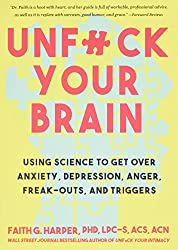Last Updated on June 15, 2023
Hello, dear loyal readers! Let’s have a little chat about something that often gets overlooked in our busy lives—sleep and why sleep is important. You may think that sleep is just a way to rest and recharge, but it’s so much more than that. In fact, getting quality sleep is crucial for our overall health and well-being. So, grab a cozy blanket, snuggle up, and let’s explore why sleep matters and how it can positively impact our lives.
The Science of Sleep
Before we dive into the benefits, let’s understand the science behind sleep. When we sleep, our bodies go through different stages, each playing a vital role in maintaining our health. One important stage is deep sleep, also known as slow-wave sleep. This is when our body repairs and regenerates tissues, strengthens our immune system and supports memory consolidation. Another crucial stage is REM (rapid eye movement) sleep, where most of our dreaming occurs and our brains process emotions and memories.
Recharge and Revitalize
Think of sleep as a magical time when your body hits the reset button. During sleep, your energy stores are replenished, allowing you to wake up feeling refreshed and revitalized. Ever noticed how a good night’s sleep leaves you feeling ready to take on the world? That’s because sleep is essential for restoring our physical and mental energy levels. It’s like giving your body a well-deserved break so you can tackle the day ahead with vigor and enthusiasm.
Boost Your Brainpower
Sleep is not just for the body; it’s also for the mind. When you sleep, your brain gets the chance to process information, consolidate memories, and improve cognitive function. Have you ever pulled an all-nighter and then struggled to focus or remember things the next day? That’s because your brain needs sleep to function optimally. Adequate sleep enhances creativity, problem-solving abilities, and overall mental clarity. So, the next time you have an important task or a creative project, don’t underestimate the power of a good night’s sleep. Why sleep is important? Because it needs to rest!
The Impact of Sleep Apnea
One sleep-related condition that deserves our attention is sleep apnea. Sleep apnea is a common disorder characterized by pauses in breathing or shallow breaths during sleep. These pauses can last for a few seconds to minutes and may occur multiple times throughout the night. Sleep apnea not only disrupts the quality of sleep but also has broader implications for our overall health. It has been linked to an increased risk of high blood pressure, heart disease, stroke, and even diabetes.
Can Sleep Apnea Kill You?
Sleep apnea itself is generally not considered a direct cause of death. However, untreated or severe sleep apnea can have serious health consequences and increase the risk of certain conditions that can be life-threatening.
The repeated pauses in breathing during sleep characteristic of sleep apnea can lead to oxygen deprivation, increased blood pressure, and strain on the cardiovascular system. Over time, this can contribute to an increased risk of high blood pressure, heart disease, stroke, and other cardiovascular complications. Additionally, untreated sleep apnea may also be associated with an increased risk of developing type 2 diabetes and other health issues.
It’s important to note that while sleep apnea can pose significant health risks, appropriate diagnosis and treatment can significantly mitigate these risks. Continuous positive airway pressure (CPAP) therapy, oral appliances, lifestyle changes, and other interventions can help manage sleep apnea effectively and reduce associated health concerns.
If you suspect you or someone you know may have sleep apnea, it’s crucial to seek medical evaluation and appropriate treatment. A healthcare professional can provide guidance and recommend the most suitable treatment options based on individual circumstances.
Strengthen Your Immune System
Did you know that sleep plays a crucial role in keeping your immune system strong and resilient? During sleep, your body produces and releases proteins called cytokines, which help fight off infections and inflammation. Lack of sleep can weaken your immune response, making you more susceptible to illnesses like colds, flu, and even chronic conditions. So, if you want to keep those pesky germs at bay, make sure you prioritize sleep as part of your wellness routine.
Maintain a Healthy Weight
Here’s an interesting fact: sleep and weight management are more connected than you might think. When you don’t get enough sleep, your hormone levels get out of whack. The hunger hormone, ghrelin, increases, making you crave high-calorie foods, while the hormone leptin, which helps regulate appetite, decreases, leading to overeating. This imbalance can contribute to weight gain and make it harder to maintain a healthy weight. So, if you’re on a weight loss journey or simply want to stay fit, don’t forget to give your body the sleep it needs, you now know why sleep is important for your health.
Nourish Your Emotional Well-being
Sleep plays a vital role in maintaining our emotional well-being and mental health. Have you ever noticed how a lack of sleep can make you feel irritable, moody, or emotionally fragile? That’s because sleep deprivation affects our emotional regulation and increases the risk of conditions like anxiety and depression. On the flip side, a good night’s sleep can improve our mood, enhance emotional resilience, and help us better navigate life’s ups and downs. So, if you want to keep your emotional balance in check, prioritize those Zzz’s.
Tips for Quality Sleep
Now that we’ve established the importance of sleep, let’s talk about some tips for getting quality sleep:
- Stick to a consistent sleep schedule by going to bed and waking up at the same time every day, even on weekends.
- Create a calming bedtime routine to signal your body that it’s time to wind down. This could include activities like reading, taking a warm bath, or practicing relaxation techniques.
- Make your sleep environment conducive to rest. Ensure your bedroom is dark, quiet, and at a comfortable temperature.
- Limit exposure to screens (yes, that includes smartphones!) before bedtime, as the blue light emitted can interfere with your sleep patterns.
- Be mindful of your caffeine and alcohol intake, as these substances can disrupt your sleep quality. Opt for herbal tea or other calming beverages instead.
- Engage in regular physical activity, but try to avoid intense exercise close to bedtime, as it may leave you too energized to sleep.
Why Sleep is Important? Recapitulation
So, sleep is not a luxury; it’s a necessity for a happy, healthy, and well-balanced life. It’s the time when your Body and Mind Recharge, repair, and rejuvenate. From boosting your brainpower and strengthening your immune system to maintaining a healthy weight and nourishing your emotional well-being, the benefits of quality sleep are numerous.
So, tonight, make a promise to yourself to prioritize sleep. Create a soothing bedtime routine, create a sleep-friendly environment, and give yourself the gift of rejuvenating rest. Your body and mind will thank you, and you’ll wake up ready to conquer the world!
Remember why sleep is important, my friend, sleep tight and have sweet dreams!
About Health, Fitness and Weight Loss Topic
Articles on physical and mental well-being, nutrition, exercise, and lifestyle changes to help readers achieve their optimal health and wellness goals.
Don’t let your health take a back seat. Get free access today to our Body and Mind Recharge Hub and start your wellness journey!


























